
at Rutgers, The State University of New Jersey
January 21-23, 2022

 |
at Rutgers, The State University of New Jersey January 21-23, 2022 |
 |
| About | Code of conduct | Program | Bios | Logistics | Apply | FAQ | Contact | Sponsors & organizers |
We are pleased to confirm the participation of the following speakers, panelists, and workshop leaders (additional biographies will be added as the program is developed further):
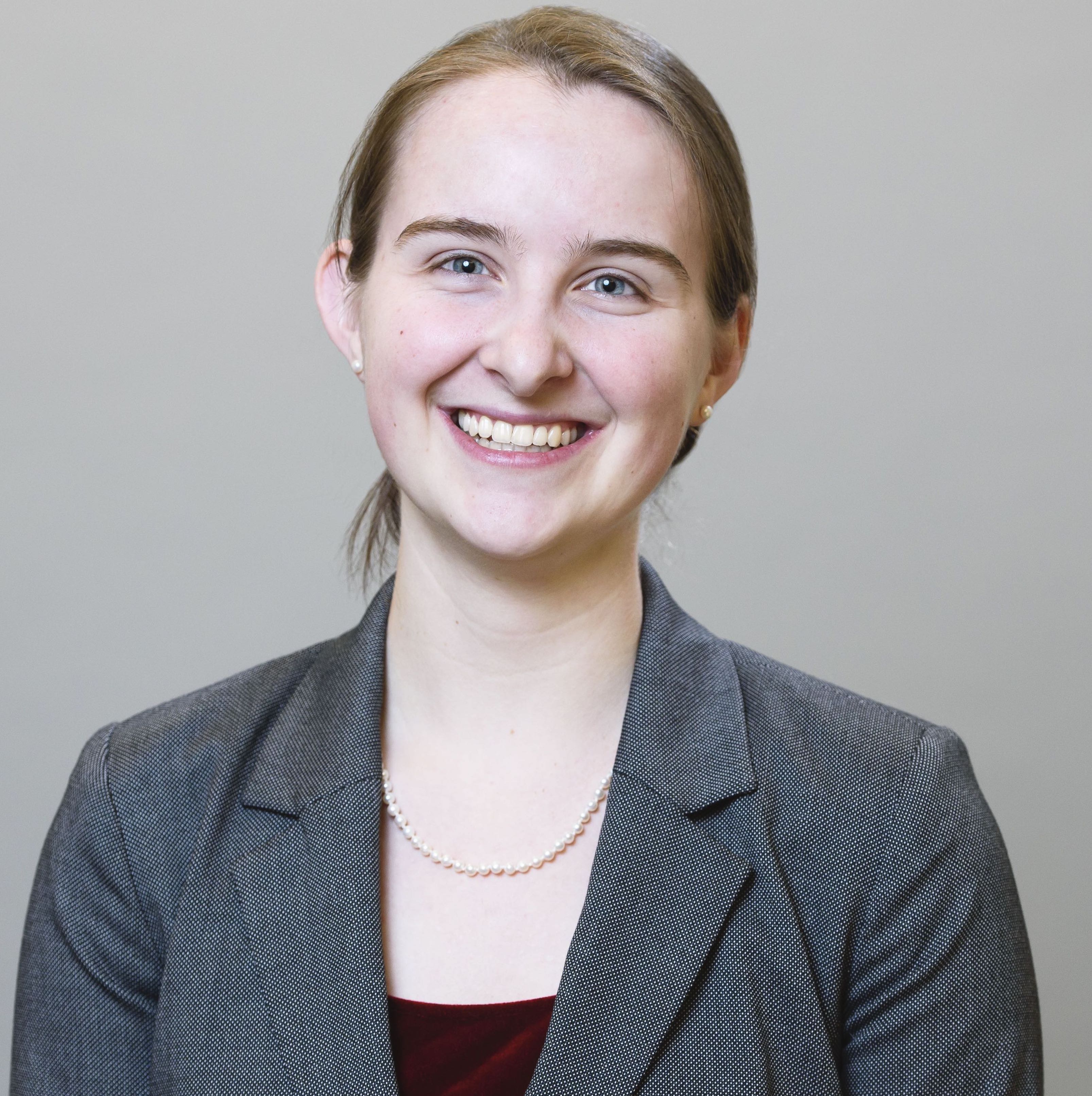
| Sabrina Appel is a fourth year Rutgers graduate student, working with Prof. Blakesley Burkhart. Her research is focused on comparing simulations of star-forming regions to analytic models of star formation. In particular, she studies the impact of stellar feedback processes, especially protostellar outflows. Her work includes analysis of existing simulation data, running new simulations, and code development for star formation simulations. |
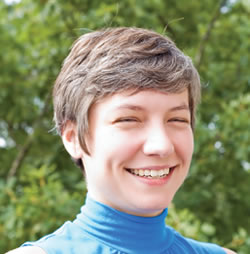
| Dr. Crystal Bailey is the Careers Program Manager at the American Physical Society (APS) in College Park, MD. She works on several projects that are geared towards marketing physics and physics career information to high school students, undergraduates, graduate students, and physics professionals. Some of her principal projects include the physics InSight slideshow, Future of Physics Days Events for undergraduates at the APS annual meetings, the APS Job Board and Job Fair, APS Webinars, and maintaining resources on the APS Careers Website. She also devotes significant amounts of time to planning career workshops and other professional development related activities to support early-career physicists and helps manage the activities of the APS Committee on Careers and Professional Development. Before coming to the APS, Dr. Bailey did research in nuclear physics at Indiana University (IU), Bloomington in the area of few-body systems. In 2008, she received the Konopinski Award for Outstanding Graduate Teaching from the IU Physics Department. She graduated with her Ph.D. from IU in 2009. |
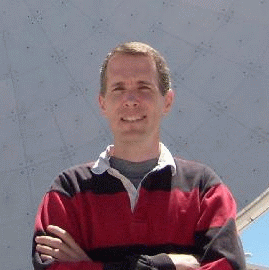
| Dr. Andrew Baker is a professor in the Department of Physics and Astronomy at Rutgers. Since earning his Ph.D. at Caltech, he has used radio, millimeter, and submillimeter-wavelength observations of interstellar matter to probe how galaxy evolution unfolds in the nearby and distant universe. He is also a former director of the Rutgers physics and astronomy REU program. |
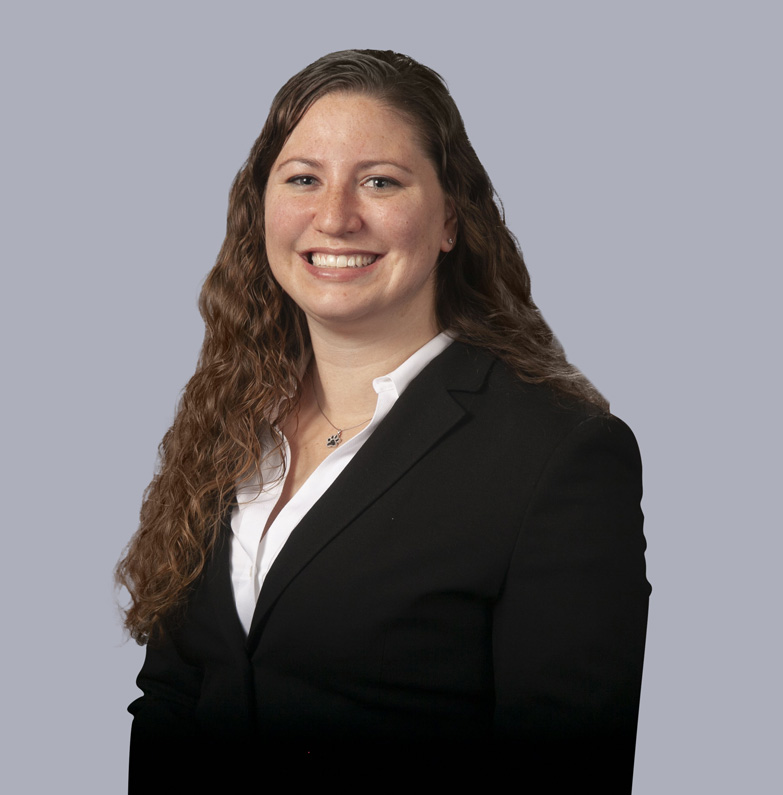
| Melanie Chernoff was previously a high school physics teacher and now implements her passion for physics as a patent attorney to protect the Intellectual Property rights of her clients. Her practice focuses on drafting and prosecuting patent applications, opining on whether a client has the freedom to use their invention without infringing others, and providing litigation support. |
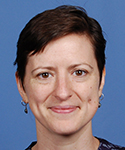
| Dr. Michelle Dolinski has an A.B.-A.M. from Harvard University and a doctorate in physics from the University of California, Berkeley, where she first began working on the search for neutrinoless double beta decay with the CUORE experiment. She then completed four years of postdoctoral research at Stanford University on the EXO-200 neutrinoless double beta decay experiment. She joined the Drexel University Department of Physics in 2012. She is now co-Spokesperson of the EXO-200 experiment and a member of the nEXO collaboration, which is building a next generation neutrinoless double beta decay experiment. She has expanded her research portfolio to also explore other properties of neutrinos through the measurement of a phenomenon known as neutrino oscillations. She works on PROSPECT, a short-baseline reactor neutrino experiment, and DUNE, a long baseline experiment to search for CP-violation in neutrino oscillations. She is also a passionate educator and enjoys teaching and training undergraduate and graduate students for their future careers. She has been Associate Dean of Graduate Education in the College of Arts & Sciences at Drexel University since September 2019. |
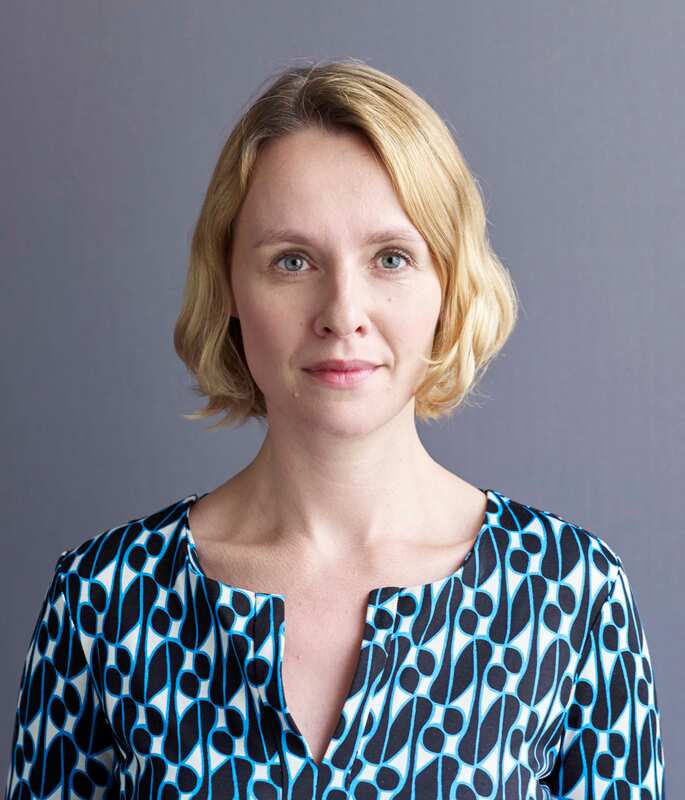
| Dr. Jo Dunkley is a Professor of Physics and Astrophysical Sciences at Princeton University. Her research in cosmology probes the origins and evolution of the Universe; she is a leader in the Atacama Cosmology Telescope and Simons Observatory collaborations, and a member of the Vera Rubin Observatory's Dark Energy Science Collaboration. She has been awarded the Maxwell Medal, the Rosalind Franklin award, and the New Horizons prize for her work on the cosmic microwave background, and as a member of the WMAP team has shared in the receipt of the Gruber Prize in Cosmology and the Breakthrough Prize in Fundamental Physics. Her book for the general public, Our Universe: An Astronomer's Guide, was published in 2019. |
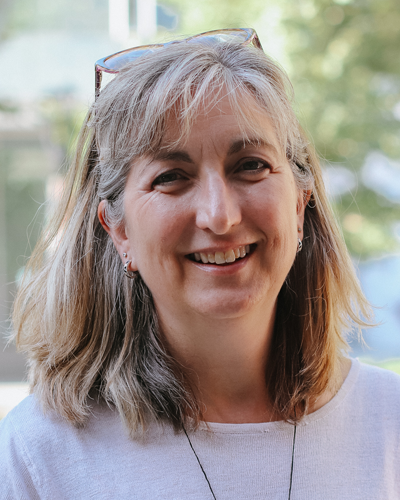
| Dr. Colleen Epler-Ruths is the STEM Education Consultant at the Central Susquehanna Intermediate Unit in Pennsylvania. She has 20+ years of experience in the public science classroom where she taught physics, computer science, and other science courses. Her Ph.D. work focused on spatial skills' impact on student learning. Besides being a tech guru, she is an outdoor enthusiast, Penn State Extension Master Gardener, Ambassador for STEP UP physics, and a Fulbright Global Educator. This year she is learning the "sport" of beekeeping and grand-parenting. |
|
| Dr. Heather Garland is a 5th year graduate student at Rutgers University studying nuclear astrophysics. Her thesis is working to continue the validation of the Surrogate Reaction Method (SRM) in inverse kinematics with radioactive ion beams. The SRM has applications in astrophysics (neutron star mergers and supernovae) and nuclear defense physics. Heather has been an advocate for womxn in physics by running the Womxn in Science Social at the Division of Nuclear Physics APS meeting every year. She is from Pennsylvania and outside of work is passionate about horseback riding, olympic weightlifting, and board games. |
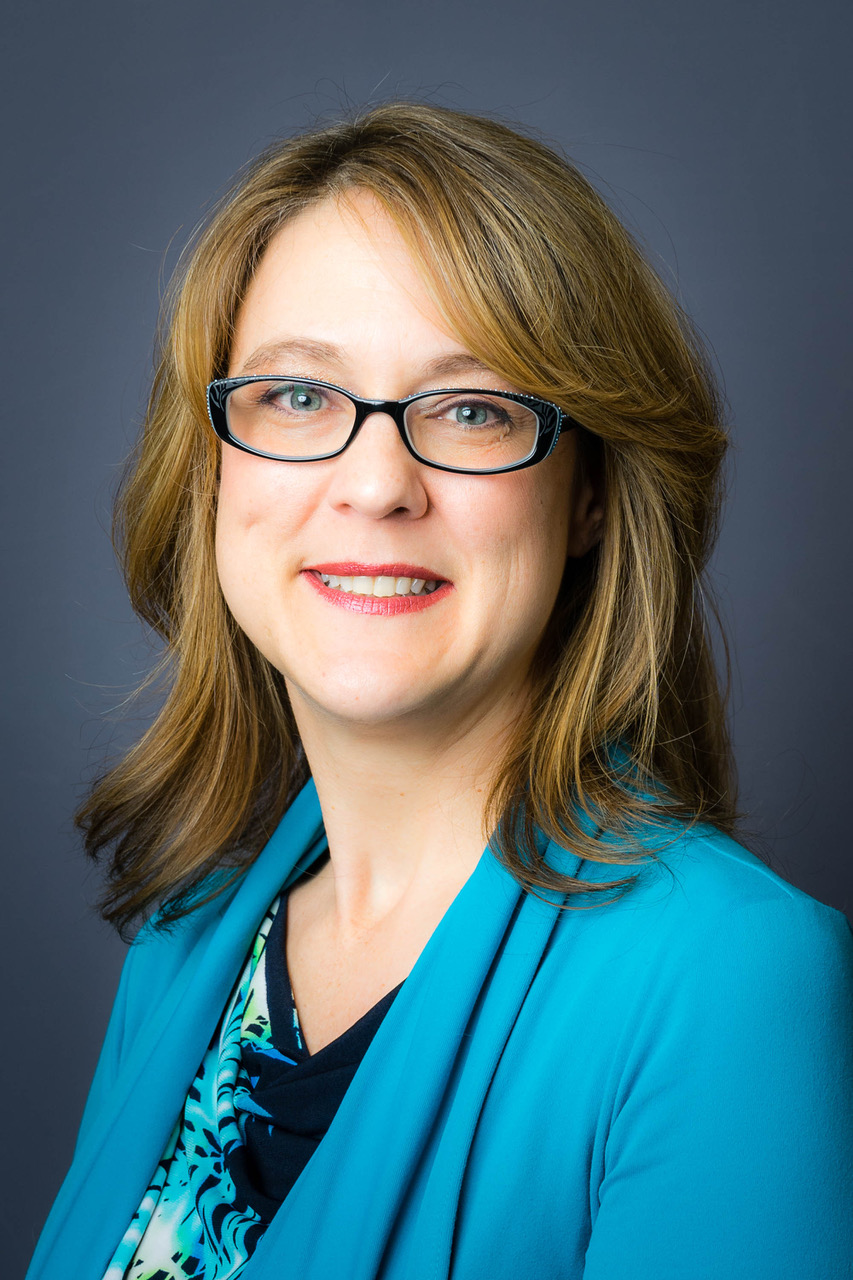
| Dr. Catherine Good received a master's degree in mathematics from the University of Kansas in 1994 and an Ad Hoc Interdisciplinary Ph.D. in mathematics education and social psychology from The University of Texas at Austin in 2001. While a postdoctoral research fellow at Columbia University from 2001-2005 she developed a research program that focuses on the social forces that shape academic achievement, learning, motivation, and self-image, particularly for females in STEM disciplines. In particular, she studies the effects of stereotype threat and develops interventions to help students overcome its effects. Specifically, she focuses on increasing students' sense of belonging to STEM disciplines and fostering incremental views of intelligence as methods of combating the cultural stereotypes. |
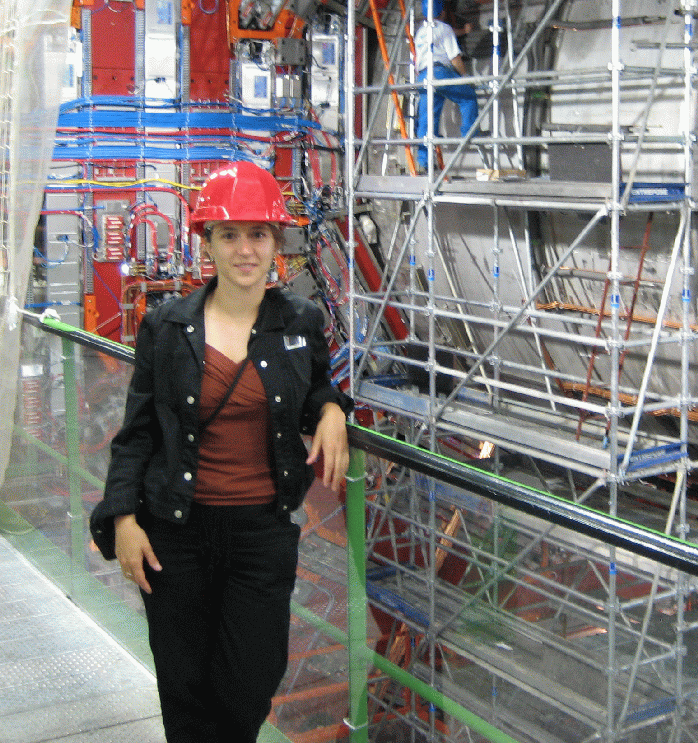 | Dr. Eva Halkiadakis is a Professor of Physics at Rutgers, the State University of New Jersey. She is an experimental particle physicist and is a member of the Compact Muon Solenoid (CMS) experiment at the Large Hadron Collider (LHC) at the CERN laboratory in Switzerland. Her recent research focuses on searching for new physics at the LHC, with a special emphasis on searches for new physics in "multi-jet" signatures. Professor Halkiadakis is the recipient of the National Science Foundation CAREER award in 2008, the Fermilab LHC Physics Center Fellowship in 2011 and 2012, and the Rutgers Board of Trustees Fellowship for Scholarly Excellence in 2012. She received her Ph.D. from Rutgers University in 2001 and was subsequently a postdoctoral researcher with the University of Rochester before joining the Rutgers faculty in 2006. |
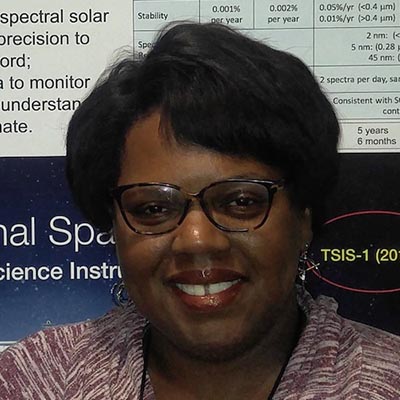
| Dr. Elaine N. Lalanne earned a BA in Physics from Wellesley College in 1994 and a Ph.D. from the joint department of Applied Physics from New Jersey Institute of Technology/ Rutgers University-Newark in 2003. She is currently an employee of Fibertek, contracted to work as a laser expert in the Radiometric Calibration Facility, Biospheric Sciences Laboratory at NASA. Dr. Lalanne held previous positions as a physicist at the Naval Air Systems Command (NAVAIR) and research scientist at the Center for Advanced Studies in Photonics Research (CASPR) at the University of Maryland, Baltimore County (UMBC). During her tenure, she developed ultrafast laser system and measurement techniques and assisted in managing the Ultrafast Optics and Optoelectronic Laboratory. Dr. Lalanne is currently a board member of the National Society of Black Physicists (NSBP) as the treasurer. |
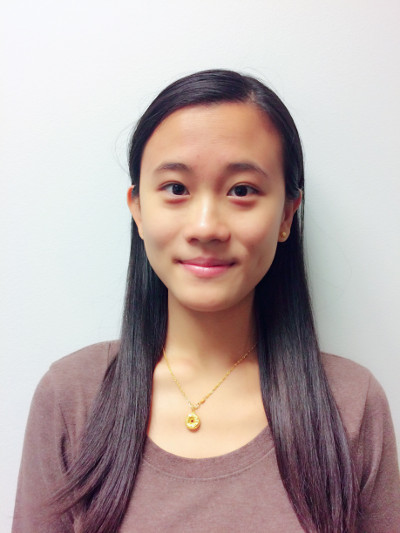
| Win Lin is a fourth year Ph.D student at the Physics and Astronomy department at Rutgers University. She is working on the Muon proton Scattering Experiment (MUSE) to study the proton radius puzzle, with frequent trips to Paul Scherrer Institut in Switzerland to take live data of electron, muon and pion produced from a cyclotron proton source. Her work involves data analysis, detector testing, simulations and prototype constructions. Before becoming a graduate student, Win worked as an undergraduate researcher starting in her sophomore year. When she isn't working on physics, Win enjoys baking and traveling. |
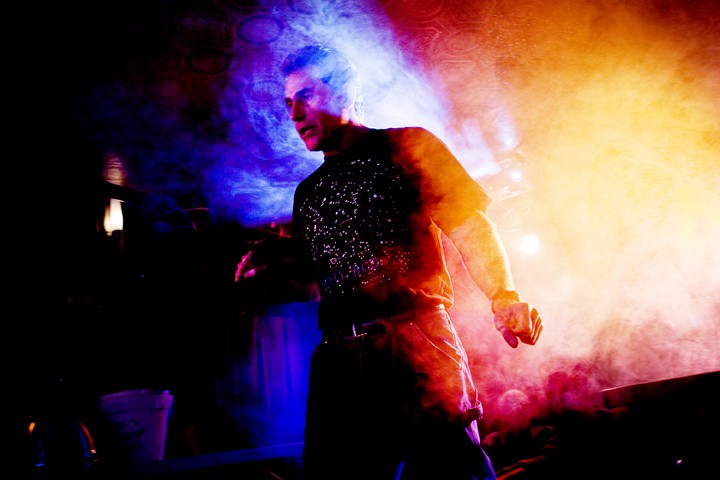
| David Maiullo is the Physics Support Specialist for the Department of Physics and Astronomy. He is a Rutgers College graduate, and he puts his all in his physics demonstrations. In a Rutgers Magazine article, Dave was appropriately referred to "a human physics demonstration". His physics shows never fail to disappoint. |
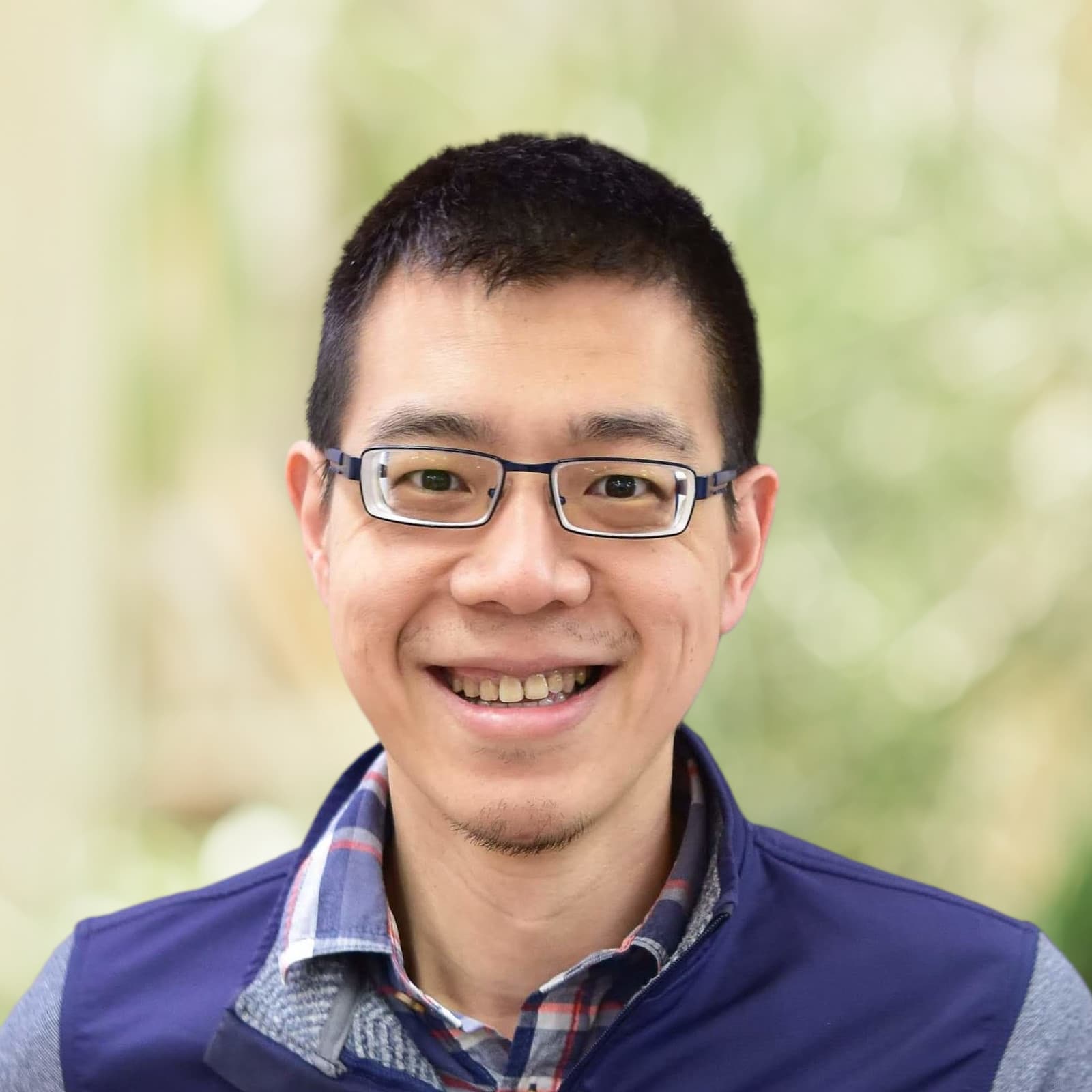
| Dr. Yao-Yuan Mao (they/he) is an astrophysicist and currently a NASA Einstein Fellow at Rutgers University (New Brunswick, New Jersey). In Summer 2022, Yao will join the University of Utah as an Assistant Professor of Physics and Astronomy. Yao studies galaxies and their invisible nests, the dark matter halos, hoping to understand how galaxies form and what make up of dark matter. Yao is the current maintainer of the Astronomy and Astrophysics Outlist. |
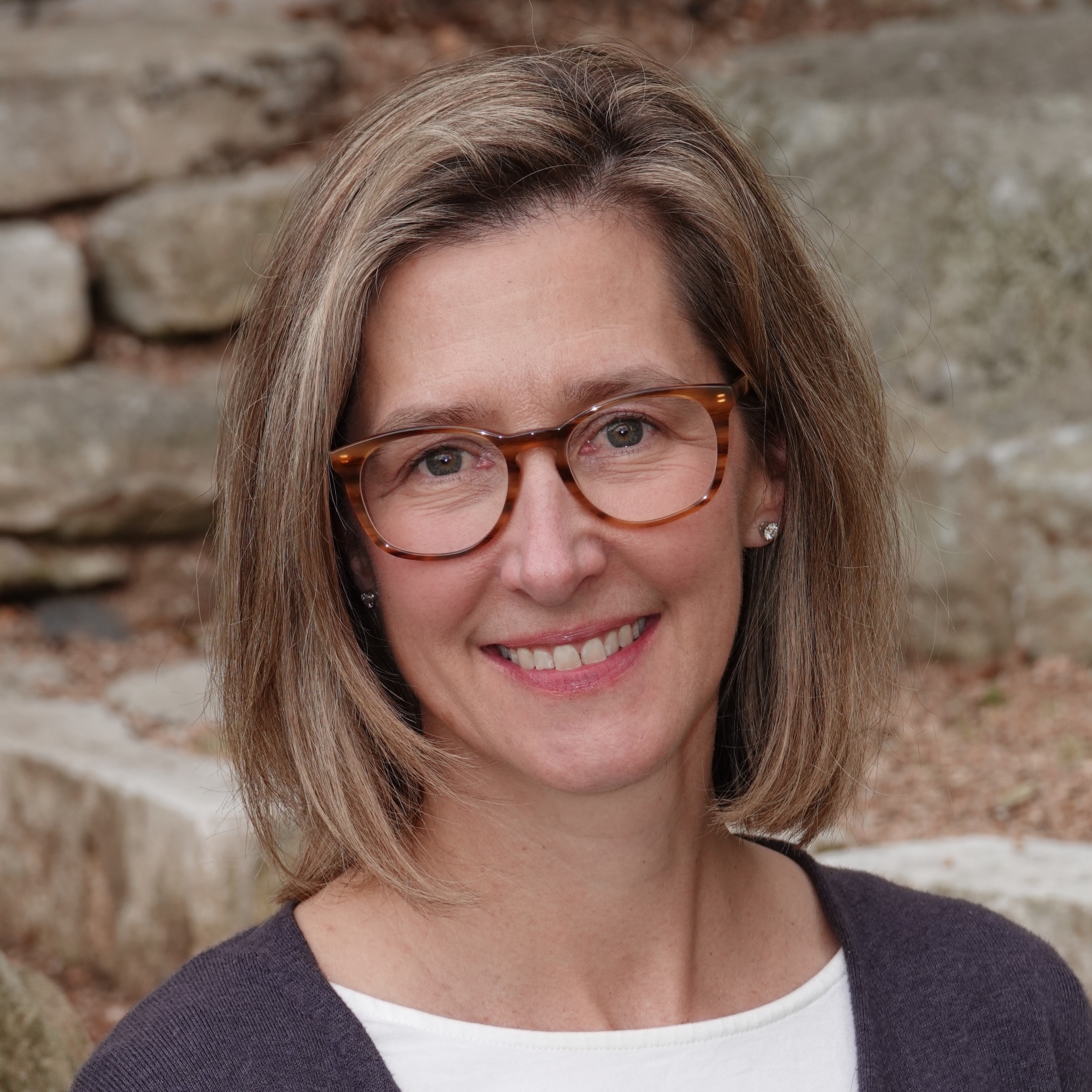
| Dr. Kristen McQuinn is an Assistant Professor of Astrophysics at Rutgers University. Originally trained as a mechanical engineer at Lehigh University, McQuinn spent a decade in business before returning to get her PhD in Astrophysics at the University of Minnesota. Prior to joining Rutgers, she held a research faculty position at the University of Texas at Austin. Prof. McQuinn's research focuses on the formation and history of low-mass galaxies, and what such galaxies can tell us about the history of the universe. She uses data from across the electromagnetic spectrum to measure myriad aspects of galaxy properties, and is leading three programs on NASA's new flagship mission the James Webb Space Telescope. |
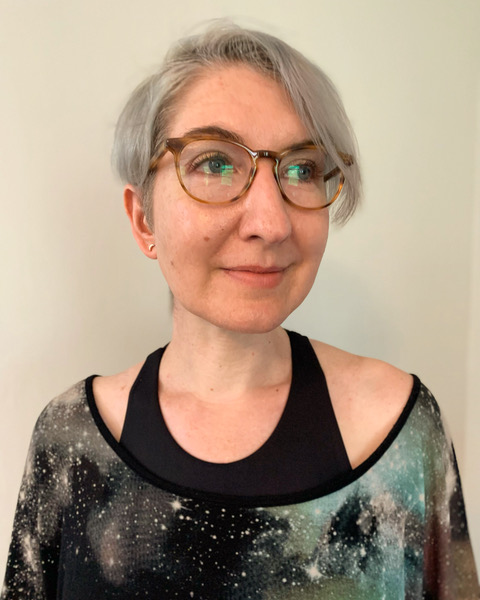
| Charlotte Olsen is a 5th year graduate student at Rutgers University. Their work focuses primarily on how galaxy star formation history reconstruction can be used to explore the role of environment in galaxy evolution. Charlotte has a particular interest in resolved observations, low mass galaxies, interacting galaxies, and galaxies in groups and pairs. They are a former graduate chair of Rutgers Minorities in Physics and Astronomy (RU MiPA), a former committee member for the Rutgers Graduate Student Mental Health Committee, and a current member of the International Society of Non Binary Scientists (ISNBS). Charlotte gives an annual talk on mental health in graduate school, as well as contributes to an annual seminar on underrepresented students in physics and bias. Along with other outreach and advocacy, they have recently contributed to a white paper focusing on best practices to support nonbinary scientists in astronomy and planetary sciences. Charlotte also has the world's cutest dog and used to play bass in a rock band. |

| Dr. Shannon O'Reilly is the Director of the Medical Physics Graduate Programs and an Assistant Professor at the University of Pennsylvania. Dr. O'Reilly earned her BS in Nuclear Engineering and an MS and PhD in Biomedical Engineering with a concentration in Medical Physics from the University of Florida. She is certified by the American Board of Radiology in Therapeutic Medical Physics. Dr. O'Reilly's research interests include 4DCT ventilation, Monte Carlo dosimetry, and reducing radiation-induced toxicities. Her clinical responsibilities include proton and photon radiotherapy, quality assurance, and HDR brachytherapy. Dr. O'Reilly is the current president of the Delaware Valley Chapter of the American Association of Physicists in Medicine. |
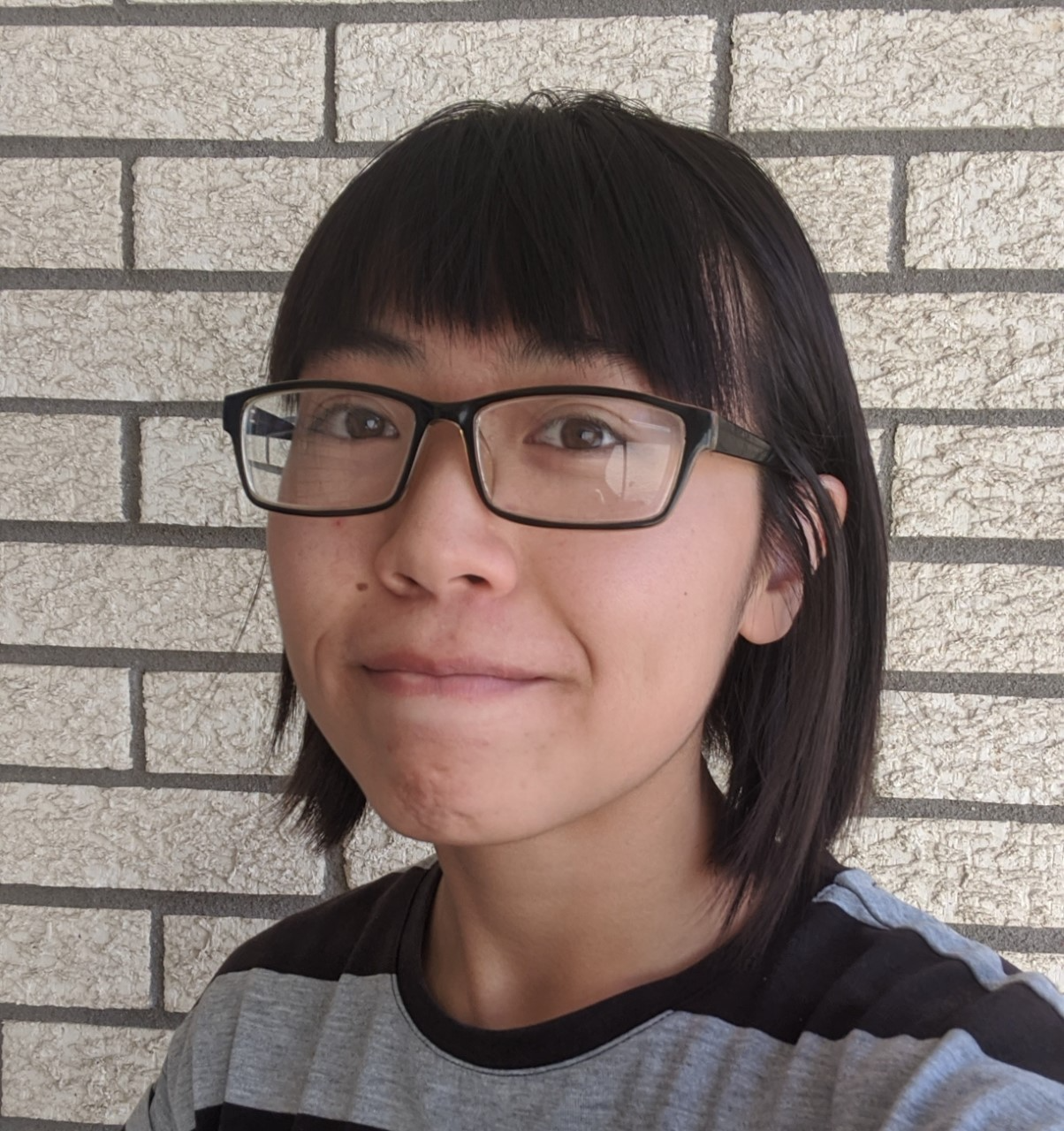
| Dilys Ruan is a second-year astrophysics graduate student at Rutgers. She studies gravitational lensing from galaxies, and is particularly interested in how mass modeling introduces bias when measuring the Hubble constant. She received her undergraduate degree in her hometown at the University of New Mexico. Dilys is currently the co-organizer of Rutger's Equity and Inclusion Journal Club, hosted by the Minorities in Physics and Astronomy (MiPA) group. |
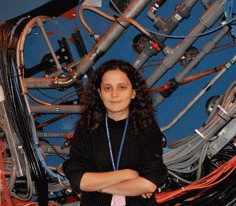
| Dr. Sevil Salur is an associate professor in the Department of Physics and Astronomy at Rutgers. Since earning her Ph.D. at Yale University, she has studied experimental high-energy nuclear physics and investigated the properties of strongly interacting, very hot and dense matter produced in the Large Hadron Collider (LHC) at CERN and the Relativistic Heavy Ion Collider (RHIC) at Brookhaven National Laboratory in Long Island, NY. She is a member of the CMS Collaboration at the LHC and the STAR Collaboration at RHIC. The CMS experiment at the LHC is a general multi-purpose detector designed to explore physics at the large (TeV) energy scales. The STAR experiment is one of the two large-scale experiments at RHIC and is designed to measure the particles that are produced in the collisions of protons and gold ions. In the course of her experimental work, Salur explores how matter originally formed. |
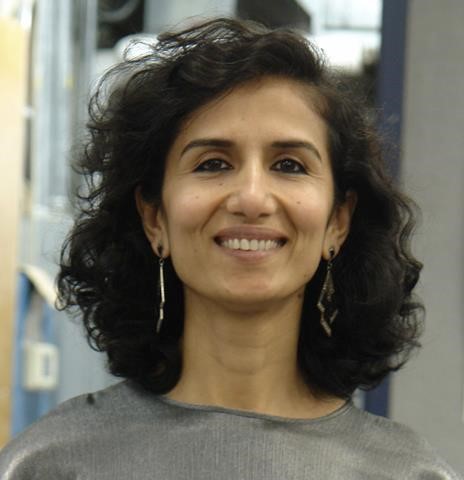
| Dr. Chandralekha Singh is a professor in the Department of Physics and Astronomy and the Founding Director of the Discipline-based Science Education Research Center (dB-SERC) at the University of Pittsburgh. She is currently the Past President of the American Association of Physics Teachers. She obtained her bachelors and masters degrees from the Indian Institute of Technology Kharagpur and her Ph.D. in theoretical condensed matter physics from the University of California Santa Barbara. She was a postdoctoral fellow at the University of Illinois Urbana Champaign, before joining the University of Pittsburgh. She has been conducting research in physics education for more than two decades. She co-led the US team to the International Conference on Women in Physics in Birmingham UK in 2017. She is a Fellow of the American Physical Society, American Association for the Advancement of Science and American Association of Physics Teachers. |
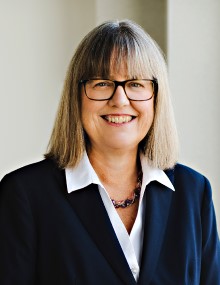
| Dr. Donna Strickland is a professor in the Department of Physics and Astronomy at the University of Waterloo and is one of the recipients of the Nobel Prize in Physics 2018 for developing chirped pulse amplification with Gérard Mourou, her PhD supervisor at the time. They published this Nobel-winning research in 1985 when Strickland was a PhD student at the University of Rochester in New York state. Together they paved the way toward the most intense laser pulses ever created. The research has several applications today in industry and medicine — including the cutting of a patient's cornea in laser eye surgery, and the machining of small glass parts for use in cell phones. Strickland was a research associate at the National Research Council Canada, a physicist at Lawrence Livermore National Laboratory, and a member of the technical staff at Princeton University. In 1997, she joined the University of Waterloo, where her ultrafast laser group develops high-intensity laser systems for nonlinear optics investigations. She is a recipient of a Sloan Research Fellowship, a Premier's Research Excellence Award, and a Cottrell Scholar Award. She served as the president of the Optical Society (OSA) in 2013 and is a fellow of OSA, the Royal Society of Canada, and the SPIE (International Society for Optics and Photonics). Strickland is an honorary fellow of the Canadian Academy of Engineering as well as the Institute of Physics. She received the Golden Plate Award from the Academy of Achievement and holds numerous honorary doctorates. Strickland earned a PhD in optics from the University of Rochester and a B.Eng. from McMaster University. |
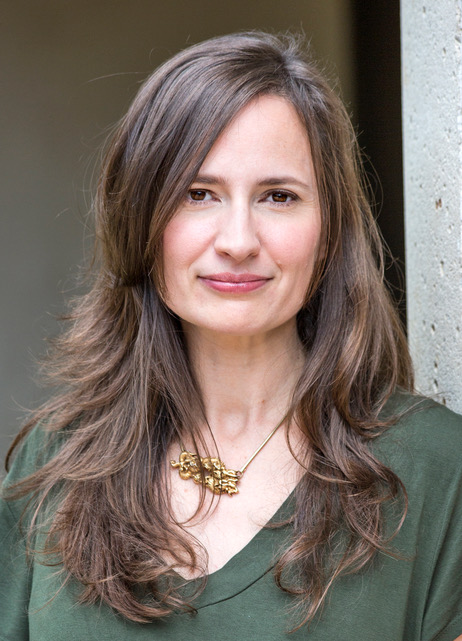
| Shannon Swilley Greco is the Science Education Program Leader at the Princeton Plasma Physics Laboratory at Princeton University. She is a passionate science educator with eighteen years' experience developing, implementing, and evaluating successful hands-on science and engineering education programs for informal science, K-12 students and teachers, and the general public. Ms. Swilley Greco holds a Master of Science in Science Education degree, and her work focuses on increasing participation of women and minorities in STEM. She was recognized by the YWCA as a "Woman of Excellence" for her work toward their mission of "Empowering Women and Eliminating Racism." Shannon Swilley Greco is the current Chair of the American Physical Society's Forum on Outreach and Engaging the Public, an APS Career Mentoring Fellow, and APS STEP UP Ambassador. |
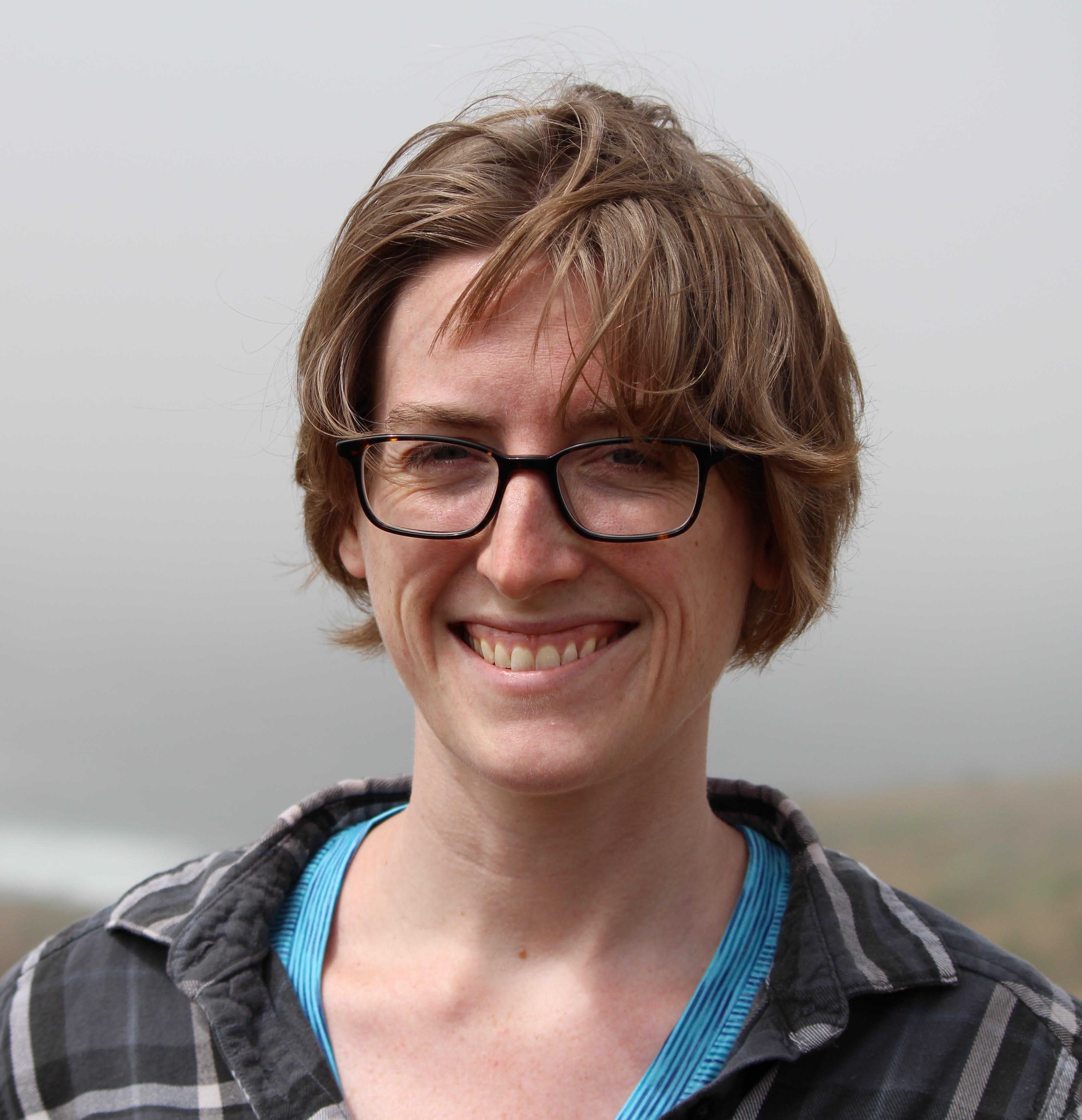
| Dr. Grace Telford is a postdoctoral researcher at Rutgers University who uses observations of resolved stars in nearby galaxies to study the processes that regulate galaxy evolution. She earned her Ph.D in astronomy with a focus on data science methods from the University of Washington in 2019, and before that completed bachelor's degrees in astrophysics and bioengineering at the University of Pittsburgh. |
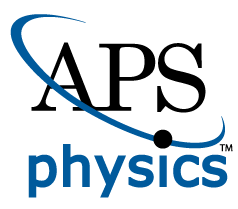 |
 |
 |